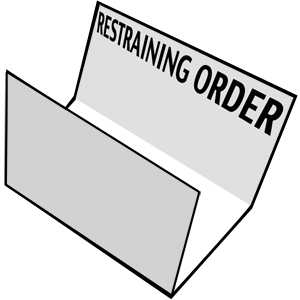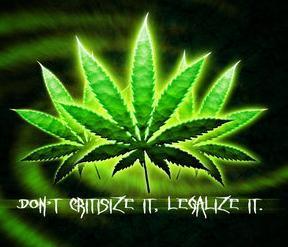Underage Drinking Prohibited, Except…
Thursday, March 6th, 2014

With two colleges located in Wilmington, North Carolina (University of North Carolina- Wilmington and Cape Fear Community College) it is safe to consider Wilmington, NC a college town; which makes it the perfect town for nightclubs and beach bars. The allure to drink alcohol can be quite strong in a college atmosphere, yet many of the students located here are under the legal drinking age of 21.
In North Carolina, laws concerning the sale, possession, and consumption of alcoholic beverages are contained in N.C.G.S. Chapter 18B, Article 3 (§ 18B-300 to §§ 18B-310 through 18B-399).
· If you are less than 19 years of age and convicted of drinking, which is a Class 1 Misdemeanor, your punishment can include a fine in the discretion of the judge, community service hours and a $250 fee or jail, plus court costs of currently $180.
· If you are 19 or 20 years of age and convicted of drinking, which is a Class 3 Misdemeanor, you punishment can include a fine of up to $200 and community service hours and a $250 fee or jail, plus court costs of currently $180
· If you are under the age of and convicted of purchasing or attempting to purchase alcoholic beverages, a Class 1 misdemeanor, your punishment can include Community service hours and a $250 fee or jail time, court cost of currently $180, and a fine is discretion of the judge. In addition, your driver license will be suspended for one year and you will not be able to obtain a limited driving privilege.
While our underage drinking laws are stricter than those in some other states, North Carolina recognizes three exceptions to the general rule prohibiting minors from possessing or consuming alcohol.
- Religious participation. A minor may possess and consume wine for sacramental purposes in an organized church. (North Carolina Gen. Stat. Ann. Section 18B-103(8).)
- Employment. Minors may possess, transport, or dispense—but not consume—alcohol during the course of employment in an establishment licensed to sell alcohol. Such employment must also be lawful under North Carolina’s youth employment statutes. (North Carolina Gen. Stat. Ann. Section 18B-302(h).)
- Education. Minors may possess and consume alcohol under the direct supervision of an instructor, during the course of a licensed and accredited culinary program, when such consumption is a required part of the curriculum. (North Carolina Gen. Stat. Ann. Section 18B-103(11).)
Collins Law Firm has represented thousands of people charged with crimes or infractions, and many involving crimes involving violating the laws regarding the sale, possession, and consumption of alcohol or underage consumption or possession of alcohol. In many cases, especially for first time offenders, we have been able to avoid convictions. Currently, in most cases for first time offenders, even if there is no solid defense, we are able to negotiate an agreement with law enforcement officer and the district attorney’s office to have the charges dismissed pursuant to a deferred prosecution after the defendant completes a certain number of hours of volunteer service, or completing a class about alcohol and the laws regarding alcohol, or completing other conditions for dismissal, or a combination thereof. In some cases where there is a solid defense, we are able to have the charges dismissed without our clients having to perform any community service or complete classes.
If you or someone you know have been charged with any crime in Southeastern North Carolina, in or around Wilmington NC in New Hanover County, Brunswick County, or Pender County, and need a lawyer or attorney to represent you, call us for a confidential consultation at 910-793-9000.
By Rachel Reynolds, Legal Assistant, Collins Law Firm


 ”Let it snow, let it snow, let it snow” is the chant all the New Hanover County kids are chanting this morning as they await their winter wonderland. In anticipation of inclement weather New Hanover, Pender, Brunswick, Columbus, Bladen, and other surrounding counties have all cancelled school today and will probably do the same for tomorrow. In addition to schools being cancelled, many courts are closed as well.
”Let it snow, let it snow, let it snow” is the chant all the New Hanover County kids are chanting this morning as they await their winter wonderland. In anticipation of inclement weather New Hanover, Pender, Brunswick, Columbus, Bladen, and other surrounding counties have all cancelled school today and will probably do the same for tomorrow. In addition to schools being cancelled, many courts are closed as well.
 It comes time for another holiday weekend in Wilmington, NC as we celebrate a weekend full of activities and events to help celebrate Martin Luther King Jr. Day on Monday, January 20th, 2014. Thanks to the M.L.K Celebration Committee and their sponsors, these activities continue to be an important educational and community building event here in Wilmington and Southeaster North Carolina.
It comes time for another holiday weekend in Wilmington, NC as we celebrate a weekend full of activities and events to help celebrate Martin Luther King Jr. Day on Monday, January 20th, 2014. Thanks to the M.L.K Celebration Committee and their sponsors, these activities continue to be an important educational and community building event here in Wilmington and Southeaster North Carolina.  North Carolina is fortunate to be the hot spot to many tourists because of it’s southern beaches, historical sites, and beautiful landscape. Another attraction that North Carolina is naturally endowed with are some of the greatest motorcycle rides in America that attract bikers from all over. A popular one on the Eastern side of North Carolina is the Topsail Loop ride- which travels from Jacksonville NC to Topsail NC passing over the Atlantic Intracoastal Waterway and traveling through Surf City, NC. With an increase of bikers on the roads, North Carolina decided to pass a new motorcycle safety law, to be effective October 1st, 2013, which will increase penalties for unsafe movements by drivers that threaten the property and safety of motorcyclists. This law, titled the Motorcycle Safety Act, which will change the reading of G.S. 20-154 to read as rewritten:
North Carolina is fortunate to be the hot spot to many tourists because of it’s southern beaches, historical sites, and beautiful landscape. Another attraction that North Carolina is naturally endowed with are some of the greatest motorcycle rides in America that attract bikers from all over. A popular one on the Eastern side of North Carolina is the Topsail Loop ride- which travels from Jacksonville NC to Topsail NC passing over the Atlantic Intracoastal Waterway and traveling through Surf City, NC. With an increase of bikers on the roads, North Carolina decided to pass a new motorcycle safety law, to be effective October 1st, 2013, which will increase penalties for unsafe movements by drivers that threaten the property and safety of motorcyclists. This law, titled the Motorcycle Safety Act, which will change the reading of G.S. 20-154 to read as rewritten: Year after year during the Thanksgiving holiday period we experience one of the most travel heavy times of the year. This year a large storm threatens our Thanksgiving holiday travel and may require a lot of patience while on the roads.
Year after year during the Thanksgiving holiday period we experience one of the most travel heavy times of the year. This year a large storm threatens our Thanksgiving holiday travel and may require a lot of patience while on the roads. In just a few weeks a new law will be going into effect in North Carolina called “The Hassani N. Wesley Students’ School Bus Safety Act.” This act was passed earlier this year, but is scheduled to come into effect on December 1st, 2013. This bill will ultimately create harsher penalties for North Carolina drivers who illegally pass school buses.
In just a few weeks a new law will be going into effect in North Carolina called “The Hassani N. Wesley Students’ School Bus Safety Act.” This act was passed earlier this year, but is scheduled to come into effect on December 1st, 2013. This bill will ultimately create harsher penalties for North Carolina drivers who illegally pass school buses. A restraining order or a protective order is a court order, that is a form or an injunction, that requires a party (a person) to do, or to refrain from doing, certain things. A party that refuses to comply with an order may face criminal or civil penalties, and may be ordered to pay damages or be subject to other sanctions such as a term of imprisonment. If a person violates the terms of a court order, they could be in serious criminal trouble and possibly face jail time.
A restraining order or a protective order is a court order, that is a form or an injunction, that requires a party (a person) to do, or to refrain from doing, certain things. A party that refuses to comply with an order may face criminal or civil penalties, and may be ordered to pay damages or be subject to other sanctions such as a term of imprisonment. If a person violates the terms of a court order, they could be in serious criminal trouble and possibly face jail time. On August 12, 2013, United States Attorney General Eric Holder announced to the American Bar Association’s House of Delegates in San Francisco, an initiative to curb mandatory minimum drug sentences that the nation is “coldly efficient in jailing criminals,” but it “cannot prosecute or incarcerate” into becoming a safer country. “Too many Americans go to too many prisons for far too long, and for no truly good law enforcement reason,” Holder said . The arguments about legalization of drugs in the US include health and social problems, potential tax revenue, and public safety concerns. However, this speech by our Attorney General focused on alleviating an overburdened prison system housing non-violent people convicted and sentenced to very long prison terms for peaceful drug crimes. Regarding the debate over legalization, the nation has moved from the question of “if” to the more tangible question of “how,” said Beau Kilmer, co-director of the RAND Drug Policy Research Center and co-author of “Marijuana Legalization: What Everyone Needs to Know.”
On August 12, 2013, United States Attorney General Eric Holder announced to the American Bar Association’s House of Delegates in San Francisco, an initiative to curb mandatory minimum drug sentences that the nation is “coldly efficient in jailing criminals,” but it “cannot prosecute or incarcerate” into becoming a safer country. “Too many Americans go to too many prisons for far too long, and for no truly good law enforcement reason,” Holder said . The arguments about legalization of drugs in the US include health and social problems, potential tax revenue, and public safety concerns. However, this speech by our Attorney General focused on alleviating an overburdened prison system housing non-violent people convicted and sentenced to very long prison terms for peaceful drug crimes. Regarding the debate over legalization, the nation has moved from the question of “if” to the more tangible question of “how,” said Beau Kilmer, co-director of the RAND Drug Policy Research Center and co-author of “Marijuana Legalization: What Everyone Needs to Know.” Job security is always an aspect to consider when choosing a job or career path, especially with a sloping economy. Economists are predicting that over the next fifteen years certain jobs in the medical field such as nurses and nursing assistants will become in short supply, which will increase the demand for such jobs. There are many different certifications and licenses you may receive within this targeted medical field such as becoming a registered nurse, a certified nursing assistant, a licensed practical nurse, along with many more. Persons in the health care field have a very emotional job as they work with those who are sick and ill. As they work with those, who many times cannot take care of themselves, sometimes questions and allegations arise as they help others’ loved ones.
Job security is always an aspect to consider when choosing a job or career path, especially with a sloping economy. Economists are predicting that over the next fifteen years certain jobs in the medical field such as nurses and nursing assistants will become in short supply, which will increase the demand for such jobs. There are many different certifications and licenses you may receive within this targeted medical field such as becoming a registered nurse, a certified nursing assistant, a licensed practical nurse, along with many more. Persons in the health care field have a very emotional job as they work with those who are sick and ill. As they work with those, who many times cannot take care of themselves, sometimes questions and allegations arise as they help others’ loved ones.